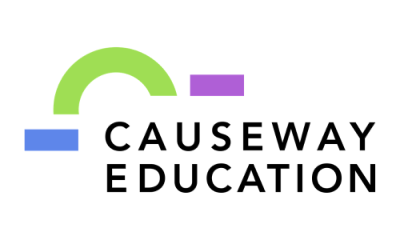I meet Sam at St Pancras. I spy a shiny new Nepresso machine and make a joke to the guy working there about it. He says it’s been very popular. I’ll say, it beats the urn coffee.
We arrive in Derby, grab a yellow taxi to the university and get shown the room at the university to set up. A notice tells us that the previous day this room was used for muscular skeletal shoulder ultrasound training. It still amazes me how many different topics are taught in university.
We’ve been working in this region since May, trying to help state schools make changes to their systems that will improve university progression. We do this by training up a key member of staff, normally a head of sixth form, as an ‘Access Champion’ who champions university access in their school or college. Research, training, and a set of benchmarks that can help school improve their provision, are some of the tools in our kit. But great delivery, enthusiasm and good relationships are just as important, so we work to get the know the teachers and their schools really well.
There are two new schools attending today so I think about how I can enthuse them about the programme. I really needn’t have worried, as soon as our returning Access Champions arrive they start sharing their successes and do that job for me:
- “We have had a phenomenal year of applications that we can only attribute to being part of this programme”
- “Overall the quality of our applications has been much higher”
- “Nottingham University got in touch to say that one of our nursing applicants had the best personal statements they had ever seen”
- “We have had our first Oxbridge offer in over 20 years”
- “Students are much more aware for the need to attend outreach opportunities and we have been sending them on so many different courses.”
- “Our references were much better.”
There are challenges, of course. Many sixth forms are struggling: declining numbers, unconditional offers from universities that make it hard to motivate students to stay on target, and finding ways to inspire underachieving boys seem to be an issue across all income brackets. Plus, there are programme issues that I need to hear and act on.
Our Access Champions have two main objectives for today’s training: analysing university destinations data, and benchmarking their school’s overall provision for HE guidance.
Analysing destinations data is really interesting for the Access Champions. We want them to analyse and understand the progression of their students, by POLAR, FSM, gender, ethnicity and any other groups where outcomes might differ. We also encourage them to think about comparing this with intentions data and UCAS offer data: which courses are popular, which courses are students having successes in? Are there any courses or institutions where they struggle to get offers? Schools often look at this data on an individual basis, but not in detail over a whole cohort or over successive years. In doing this basic analysis, one school found that students never got in for midwifery at their local university. This prompted a call to the university to explore possible reasons why, revealing that the course is heavily oversubscribed, students often have to apply several years in a row to get in, and they take many mature students. Sixth form applicants, it seems, are statistically better off applying elsewhere. These nuggets of insight are completely invaluable, and a simple change can make a massive difference to students.
We introduced the Access Champions to our new Causeway Benchmarks, which can be used to assess their school’s provision of HE guidance. For each Benchmark, the Access Champions grade their current provision as Bronze, Silver or Gold, then write a development plan for working towards the next level. Our plan is then to support the schools and colleges in the second phase of the programme.
As I clamber on the train home after a long but rewarding day it’s clear that our Access Champions have already made a lot of progress, but there are still things to do to embed this in to their school systems. We’ll be back again soon to see how they’re getting on. Our ultimate goal is that when our support ends there’s a legacy within the schools and colleges that will help look out for groups of students who may being left behind for years to come.










